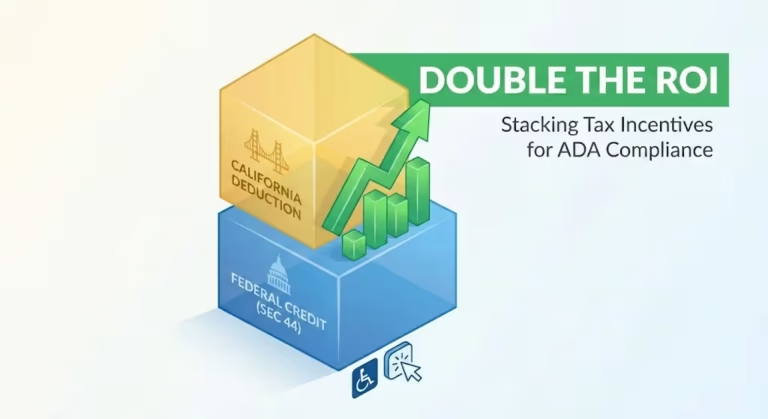Implementing effective search engine optimization (SEO) strategies is crucial for businesses aiming to improve their online visibility and attract more organic traffic. By optimizing their websites for relevant keywords and providing valuable content, businesses can increase their chances of ranking higher on search engine results pages (SERPs). Higher rankings not only enhance website visibility but also establish credibility and drive potential customer engagement.
Investing in SEO yields long-term benefits by driving targeted traffic and boosting conversions. Through meticulous keyword research, businesses can identify the most relevant keywords to target in their content. Crafting compelling meta descriptions that include secondary keywords further enhances a website’s chances of appearing prominently in Google search results. Ensuring that headlines and descriptions accurately reflect the content matter provides users with relevant information upfront.
By following these SEO tips, businesses can improve their online presence, reach a wider audience, and ultimately achieve greater success in the digital realm.
Understanding Organic Rankings & Traffic
Organic rankings and organic traffic are crucial aspects of Search Engine Optimization (SEO).
Organic Rankings: Relevance, Authority, and User Experience
Search engines like Google use complex algorithms to determine the ranking of webpages in their search results. These algorithms take into account various factors to assess the relevance and quality of a webpage.
Relevance plays a vital role in organic rankings. Search engines analyze the content on a webpage to understand its topic and match it with user queries. Optimizing webpages with relevant keywords is essential to increase their visibility in search results.
Another key factor is authority. Search engines consider the credibility and trustworthiness of a website when determining its ranking. Websites that have high-quality backlinks from authoritative sources are more likely to rank higher in organic search results.
User experience is an important aspect that influences organic rankings. Search engines aim to provide users with the best possible experience by promoting websites that offer easy navigation, fast loading times, and mobile responsiveness.
Organic Traffic: The Power of Unpaid Search Results
Organic traffic refers to visitors who find a website through unpaid search engine results. It is highly valuable as it indicates that people are actively searching for information related to your website’s content or offerings.
The significance of organic traffic lies in its potential for long-term sustainable growth. Unlike paid advertisements or social media campaigns that require ongoing investment, organic traffic can continue flowing even without continuous promotion efforts.
By focusing on improving your website’s visibility in organic search results, you can attract targeted visitors who are genuinely interested in what you have to offer. This can lead to higher conversion rates and better overall business outcomes.
Tips for Improving Organic Rankings & Increasing Organic Traffic
To improve your website’s organic rankings and increase organic traffic, consider implementing the following tips:
- Optimize webpages with relevant keywords: Conduct thorough keyword research to identify the terms and phrases your target audience is searching for. Incorporate these keywords naturally into your website’s content, including titles, headings, and meta descriptions.
- Create high-quality content: Develop informative, engaging, and valuable content that addresses the needs of your target audience. This can help establish your website as a reliable source of information within your industry or niche.
- Enhance website usability: Ensure that your website is user-friendly and easy to navigate. Optimize page load speed to provide a seamless browsing experience for visitors.
- Improve mobile responsiveness: With an increasing number of users accessing websites through mobile devices, it is crucial to have a responsive design that adapts to different screen sizes.
- Build quality backlinks: Seek opportunities to acquire high-quality backlinks from reputable websites in your industry. This can enhance your website’s authority and improve its chances of ranking higher in organic search results.
By implementing these SEO strategies consistently and focusing on providing value to users, you can gradually improve your organic rankings and attract more organic traffic to your website.
Unlock the power of SEO with Kha Creation’s expert tips – Contact us now
Key SEO Tips for Small Businesses to Rank Higher
To improve your website’s visibility and attract more organic traffic, implementing effective SEO strategies is crucial. Here are some key tips that small businesses can follow to rank higher in search engine results pages (SERPs).
Conduct Keyword Research
Identifying relevant keywords that align with your target audience’s search intent is the first step in optimizing your website for search engines. Use keyword research tools to discover primary keywords as well as long-tail keywords specific to your industry. These long-tail keywords are longer phrases that have lower search volumes but higher conversion rates. Incorporate these terms naturally throughout your content.
Optimize On-Page Elements
Optimizing on-page elements helps search engines understand the context and relevance of your webpages. Pay attention to webpage titles, meta descriptions, headers, and URLs. Include targeted keywords in these elements to increase visibility and improve click-through rates. However, avoid keyword stuffing, which can negatively impact user experience and result in penalties from search engines.
Create High-Quality Content
Content plays a significant role in SEO success. Focus on creating high-quality content that provides value to users while incorporating relevant keywords naturally. Write informative blog posts, articles, or product descriptions that answer common questions or provide solutions to users’ problems. Engaging content not only attracts visitors but also encourages them to stay longer on your site, reducing bounce rates.
Build a Strong Internal Linking Structure
Internal linking refers to connecting different pages within your website through hyperlinks. Implementing a strong internal linking structure enhances website navigation and improves search engine crawlability. When creating new content, include links to related articles or pages on your site where appropriate. This helps distribute link equity throughout your website and improves the overall user experience.
Monitor Website Performance
Regularly monitoring the performance of your website is essential for identifying areas that need improvement. Utilize analytics tools like Google Analytics to track important metrics such as organic traffic, bounce rates, and conversion rates. Analyze the data to gain insights into user behavior and make informed decisions about optimizing your website further.
Stay Updated with SEO Trends
SEO is a dynamic field that constantly evolves. Stay updated with the latest trends and algorithm changes to ensure your strategies remain effective. Follow reputable SEO blogs, attend webinars, or join industry forums to stay informed about new techniques and best practices.
Implementing these SEO tips can help small businesses improve their online visibility, attract more organic traffic, and ultimately rank higher in search engine results pages. By conducting thorough keyword research, optimizing on-page elements, creating high-quality content, building a strong internal linking structure, monitoring website performance, and staying updated with SEO trends, you can enhance your website’s chances of success in the competitive online landscape.
Conducting Comprehensive SEO Audits
Regularly auditing your website’s SEO performance is crucial for ensuring its visibility and ranking on search engines. By conducting comprehensive SEO audits, you can identify any issues or errors that may be hindering your website’s performance and take necessary steps to improve it.
Perform Technical Audits
One important aspect of an SEO audit is evaluating the technical aspects of your website. This includes analyzing the site architecture, indexing status, and XML sitemaps. By reviewing these elements, you can ensure that search engine crawlers can easily navigate and index your web pages. Tools like Google Search Console provide valuable insights into how search engines perceive your site’s technical health.
Analyze Keyword Performance
Monitoring the performance of your keywords is essential for understanding how well they are driving organic traffic to your website. Keep track of keyword rankings, click-through rates (CTRs), and organic traffic data to gauge their effectiveness. This information allows you to make informed decisions about optimizing existing content or creating new content targeting specific keywords.
Identify Issues and Errors
During an SEO audit, it’s crucial to identify any issues or errors that may affect your website’s visibility on search engines. Check for broken links, duplicate content, missing meta descriptions, slow page load times, and mobile-friendliness issues. Addressing these problems can significantly improve user experience and increase the chances of ranking higher in search results.
Utilize Google Search Console and Google Analytics
Google Search Console and Google Analytics are powerful tools that provide valuable insights into your website’s SEO health. Use Search Console to monitor search queries users are using to find your site, identify crawl errors or penalties imposed by Google, and submit XML sitemaps for indexing. On the other hand, Google Analytics offers detailed data about user behavior on your site like bounce rates, session durations, conversions, and more.
Stay Updated on Voice and Visual Search
As technology advances, voice search and visual search are becoming increasingly popular. Incorporating these elements into your SEO strategy can give you an edge over competitors. Optimize your content for voice search queries by focusing on long-tail keywords and natural language. Optimize images with descriptive alt tags to improve visibility in visual search results.
Ready to boost your online presence? Reach out to Kha Creation for valuable SEO insights.
Optimizing Website Speed and Performance
Improve Page Load Speed
To enhance the user experience and improve SEO, website owners should prioritize optimizing page load speed. This can be achieved by implementing the following techniques:
- Compress images: Large image files can significantly slow down page load times. By compressing images without compromising quality, website owners can reduce file sizes and improve loading speed.
- Minify CSS/JavaScript files: Removing unnecessary characters, spaces, and line breaks from CSS and JavaScript files reduces their size. This optimization technique helps to minimize page load time.
- Leverage browser caching: By instructing browsers to cache certain elements of a website, such as images or scripts, subsequent visits to the site will result in faster loading times.
Optimize Server Response Time
The server response time plays a crucial role in determining how quickly a web page loads. To optimize this aspect of website performance, consider the following steps:
- Choose a reliable hosting provider: Selecting a reputable hosting provider with reliable servers is essential for minimizing server response time. A poorly performing hosting service can lead to slow-loading websites.
- Implement Content Delivery Networks (CDNs): CDNs distribute website content across multiple servers located in different geographical locations. This ensures that users receive data from the nearest server, reducing latency and improving overall performance.
Enhance Mobile Responsiveness
With an increasing number of users accessing websites via mobile devices, it is crucial to ensure that your site is mobile-responsive. Here are some tips for enhancing mobile responsiveness:
- Use responsive design: Implement a responsive design framework that automatically adjusts the layout and content of your website based on the screen size of the device being used.
- Test across different devices: Regularly test your website’s performance on various mobile devices to ensure optimal user experience across all platforms.
Monitor Website Performance Metrics
Regularly monitoring key performance metrics allows you to identify areas for improvement and make necessary optimizations. Here are some metrics to keep an eye on:
- Page load time: Measure how long it takes for your web pages to fully load. Slow loading times can lead to higher bounce rates and negatively impact SEO.
- Bounce rate: This metric indicates the percentage of visitors who leave your website after viewing only one page. A high bounce rate may indicate slow-loading pages or poor user experience.
By focusing on optimizing website speed and performance, website owners can provide a seamless user experience, reduce bounce rates, and improve their search engine rankings.
Utilizing Local SEO Strategies for Targeted Traffic
To drive targeted traffic to your website, it’s crucial to implement local SEO strategies. These techniques focus on optimizing your online presence to attract customers in your specific geographical area. By following these tips, you can improve your visibility in local search results and attract more relevant visitors.
Optimize Your Google My Business Listing
One of the first steps in local SEO is optimizing your Google My Business listing. This free tool allows you to manage how your business appears on Google Search and Maps. To make the most of this platform:
- Ensure that your business information, including name, address, phone number (NAP), and website URL, is accurate.
- Encourage satisfied customers to leave positive reviews on platforms like Google Maps or Yelp. Positive reviews can boost your local search rankings.
Incorporate Location-Specific Keywords
Including location-specific keywords throughout your website content and meta tags can help you target users searching for businesses in your area. Here are some best practices:
- Identify the relevant search terms people use when looking for businesses like yours in their locality.
- Incorporate these keywords naturally into your website’s content, headings, image alt tags, and meta descriptions.
- Consider creating location-specific landing pages that cater specifically to each area you serve.
Leverage Online Directories and Citation Listings
Online directories and citation listings play a crucial role in improving local search visibility. These platforms provide valuable backlinks and citations for search engines to recognize the relevance of your business within a particular location. Here’s how you can leverage them effectively:
- Submit accurate information about your business on popular directories such as Yelp, Yellow Pages, or TripAdvisor.
- Ensure consistency across all directory listings by using the same NAP details as mentioned in other online platforms.
- Regularly monitor and update these listings to reflect any changes in contact information or business hours.
By utilizing these local SEO strategies effectively, you can increase your chances of appearing in search results when users are looking for businesses like yours in their area. This targeted traffic has a higher likelihood of converting into customers, helping you grow your business.
Leveraging High-Quality Backlinks for Enhanced Authority
To enhance your website’s authority and improve its search engine optimization (SEO) efforts, it is crucial to focus on acquiring high-quality backlinks from reputable websites that are relevant to your industry or niche. These backlinks act as a vote of confidence from other websites, signaling to search engines that your website is trustworthy and valuable.
Acquiring Backlinks from Reputable Websites
When building backlinks, it is important to prioritize quality over quantity. Seek out authoritative websites in your industry or niche and aim to secure backlinks from them. These reputable websites have established themselves as thought leaders and experts, making their endorsement through a backlink highly valuable.
One effective way to acquire high-quality backlinks is through guest blogging on authoritative sites. By contributing valuable content as a guest author, you not only gain exposure but also have the opportunity to include links back to your own website. This strategy helps build both credibility and valuable backlinks while establishing yourself as an industry expert.
Creating Valuable Content for Natural Backlink Attraction
Another way to generate high-quality backlinks is by creating valuable content that naturally attracts links from other websites seeking informative resources. When you produce exceptional content that offers unique insights, actionable tips, or comprehensive guides, other website owners are more likely to reference and link back to your content as a reliable source of information.
To optimize the chances of attracting natural backlinks, ensure that your content is well-researched, well-written, and provides value to the reader. Incorporate data-driven insights, case studies, or real-life examples whenever possible. By consistently producing top-notch content that fills a gap in the market or addresses common pain points within your industry, you increase the likelihood of earning high-quality backlinks organically.
Monitoring Your Backlink Profile Regularly
While building quality backlinks is crucial for enhancing authority, it’s equally important to monitor your backlink profile regularly. Using tools like Ahrefs or Moz, you can analyze your backlinks and identify any low-quality or spammy links that may harm your SEO efforts.
Regular monitoring allows you to proactively disavow any harmful links and ensure that your backlink profile remains clean and reputable. By keeping a close eye on your link building efforts, you can maintain a healthy balance of high-quality backlinks that contribute positively to your website’s authority.
Refreshing and Updating Content for Improved Rankings
Refreshing and updating your website content is a crucial step in improving your search engine rankings. By regularly reviewing and enhancing your existing content, you can ensure that it remains relevant, valuable, and engaging for both users and search engines. Start by identifying pages that have the potential to perform better with some updates or additions. Consider incorporating new keywords based on current trends or user queries. Make sure to optimize your content for readability and user experience by using subheadings, bullet points, and concise paragraphs.
To further enhance your rankings, don’t forget to leverage internal linking within your refreshed content. This helps search engines understand the structure of your website while guiding users to related information they may find helpful. Lastly, monitor the performance of your updated pages through analytics tools to gauge their impact on organic traffic and rankings. By consistently refreshing and updating your content, you can maintain a competitive edge in search engine results pages (SERPs) while providing value to your audience.
Don’t miss out on essential SEO advice! Connect with Kha Creation today.


